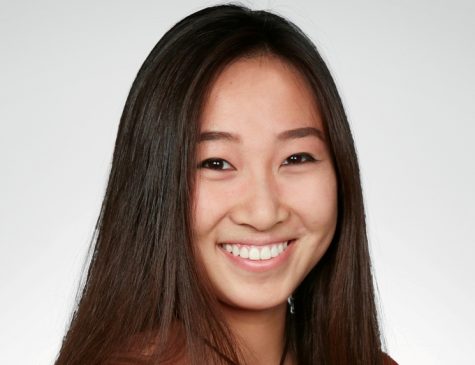Conservative students speak out about election
November 4, 2016
“I have never heard a student openly support Trump, but I definitely think there are students who support him,” says AP U.S. Government and Politics teacher, Mrs. Nancy Amini.
In fact, 12.8 percent of 196 students surveyed claim they would vote for Donald Trump. Even more students identify as politically conservative: 14.8 percent of the 196 surveyed. However, students with these views often remain silent during this election season out of fear.
“A lot of people buy into the belief that Republicans and Libertarians are the boogeyman,” explains politically conservative senior Katie Wu. “So kids with these views might be wary [of] talking about politics.”
In fact, right-wing sophomore Benjamin Roth recalls that when one of his friends wore a “Make America Great Again!” hat last year on the day of silence, many people were hostile towards him.
“I don’t think what he was wearing was offensive,” Roth says. “He wasn’t insulting anyone.”
While the right-wing isn’t necessarily popular in the Bay Area, people identify with conservative viewpoints for several reasons. Wu believes in economic conservatism, while Roth sees Trump as a much better person than Clinton.
“Clinton has done worse — more corrupt and criminal — things than say a few mean things to women,” says Roth.
Although Wu identifies more with candidate Rand Paul’s policies, she points out that Trump has made some smart suggestions, such as providing mental health care for veterans.
“Even though he’s a jingoistic idiot most of the time, just dismissing Trump is not the best way to go about things,” says Wu.
Whether students are politically liberal or conservative, teachers agree that it has become harder to create a safe atmosphere for political discussions this season. The line between free speech and disrespectful comments has become more blurred.
“This election is far more emotionally charged and poses a danger to freedom,” explains teacher Mrs. Kate MacDougall. “That makes [it] very tricky to navigate as a teacher. I don’t know how to facilitate a safe conversation when many people don’t feel safe about the election, period.”
MacDougall specifically recalls a fishbowl discussion from last May’s senior English class, where two students said they supported Trump and thought the Bay Area bias against him was absurd. Although she was nervous about how the discussion would conclude, MacDougall was pleasantly surprised when students did not silence the opinions but instead responded with many questions.
To create safer class discussions, many teachers have made the decision to keep their voting preferences anonymous.
“There are no guidelines at this school about teachers expressing political opinions,” says Amini. “I have tried it both ways — telling and not telling, but it’s pretty obvious based on my demographics that I’m going to be Democratic.”
Amini’s comment raises the question of whether teachers are able to keep their political biases silent or if they attempt to do so at Dougherty.
“I have had teachers who would make casual jokes about how dumb Trump is,” Wu recalls. “It’s fine if they mention their biases — they’re people after all — but they should not endorse their opinion as the one and only.”
MacDougall agrees that it’s probably not possible to keep political views completely silent, since teachers subconsciously add opinions, based on the texts they bring in or the ideas they’re involuntarily more excited about.
Nevertheless, MacDougall agrees that teachers’ jobs should be to facilitate conversation.
“The more we bring in our own beliefs about the content of the conversation, the less students will feel comfortable speaking.”

